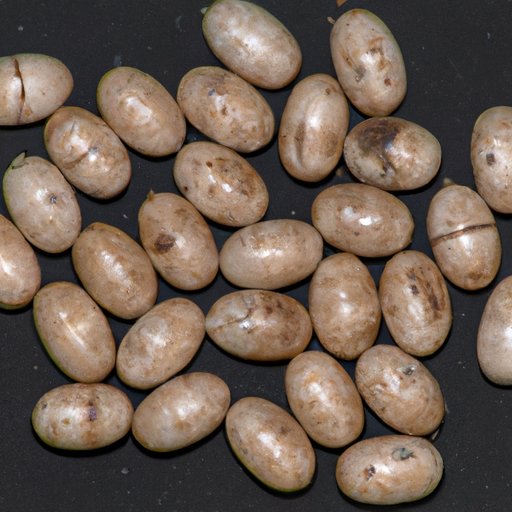
I. Introduction
Pinworms are a common intestinal parasite that affects both children and adults. These tiny worms can cause discomfort and irritation, with symptoms such as itching around the anus, insomnia, and abdominal pain. Pinworms may be easily passed from person to person, making quick and effective treatment essential. But how long does it take for pinworm medicine to work, and what factors can affect the timeline?
II. The Pinworms Medicine Timeline: When Can You Expect Relief?
There are several different types of pinworm medicine available, including both prescription and over-the-counter options. Some medications are fast-acting, while others take a bit longer to work. The timeline for pinworm medication to take effect can vary based on the type of medication and other factors, such as the severity of infestation and overall health of the individual.
For example, prescription medications such as mebendazole and albendazole can take up to 3-5 days to fully eradicate pinworms. Over-the-counter options like pyrantel pamoate and Reese’s Pinworm Medicine can start working within a few hours, but may take up to a week for symptoms to completely disappear.
It is important to follow the recommended dosage and treatment guidelines for each medication carefully to help ensure the medication works as effectively as possible.
Factors that can affect how long it takes for pinworm medicine to work include the severity of the infestation, overall health and immune function of the individual, and whether or not reinfection occurs.
III. Fast-acting Pinworm Medicine: Is It Worth the Cost?
Fast-acting pinworm medications such as Reese’s Pinworm Medicine and pinworms chewable tablets may be more convenient for some individuals, as they can start working in as little as a few hours. However, they can also be more expensive than other options and may not be covered by insurance.
When considering which medication to use, it is important to compare the effectiveness and pricing of different options. It may also be helpful to speak with a healthcare professional to determine the best choice for your needs and budget.
Other factors to consider when choosing a medication include possible side effects and precautions for use, as well as any interactions with other medications or medical conditions.
IV. 5 Reasons Why Your Pinworm Medicine May Not Be Working
Although pinworm medicine is generally effective at treating and eradicating parasites, there are several reasons why it may not work in some individuals. Common reasons for medication failure include improper dosage or administration, reinfection from contaminated surfaces or objects, and other underlying health issues that affect immune function.
To prevent and treat reinfection, it is important to practice good hygiene such as frequent hand washing, washing clothing and bedding in hot water, and thoroughly cleaning surfaces in your home.
If medication does not seem to be working, it may be necessary to speak with a healthcare provider or seek out alternative treatment options.
V. Natural Alternatives to Pinworm Medicine
For individuals who prefer to avoid medication or want to supplement their treatment, there are several natural remedies that may be effective at treating and preventing pinworm infestations. These include garlic, coconut oil, and probiotics, among others.
While natural remedies can be effective, it is important to note that they may not be as potent as traditional medication. Additionally, some natural remedies may interact with certain medications or medical conditions. It is always important to speak with a healthcare provider before starting any new treatment regimen.
VI. How Pinworms Medicine Works: A Scientific Breakdown
Pinworm medications work by targeting the pinworms directly, either paralyzing or killing them to eradicate the infestation. Some medications work by inhibiting specific enzymes or metabolic processes in the parasites, while others interfere with their nervous system function.
Overall, pinworm medications are generally safe and effective, although there are some side effects and precautions associated with their use. It is important to follow dosage and administration directions carefully and to speak with a healthcare provider about any concerns or questions.
VII. Pinworms Medication for Children: What You Need to Know
Pinworms are a common childhood parasite that can be easily passed from child to child. It is important to choose a medication that is safe and effective for children, and to administer it according to age and weight guidelines.
Options for pinworm medication in children include mebendazole, albendazole, and pyrantel pamoate. It is important to speak with a healthcare provider for specific dosage recommendations and to monitor for any possible side effects.
VIII. Conclusion
Pinworms can be an uncomfortable and inconvenient condition, but prompt and effective treatment can help eradicate the parasites and reduce the risk of reinfection. By understanding how long it takes for pinworm medication to work, choosing the right medication, and practicing good hygiene and prevention methods, individuals can help successfully treat and prevent pinworm infestations.
Key takeaways from this article include the importance of following medication instructions carefully, being aware of possible side effects and interactions, and seeking medical advice or alternative treatment if medication is not effective. By taking a proactive approach to pinworm treatment, individuals can help protect their health and wellbeing.




